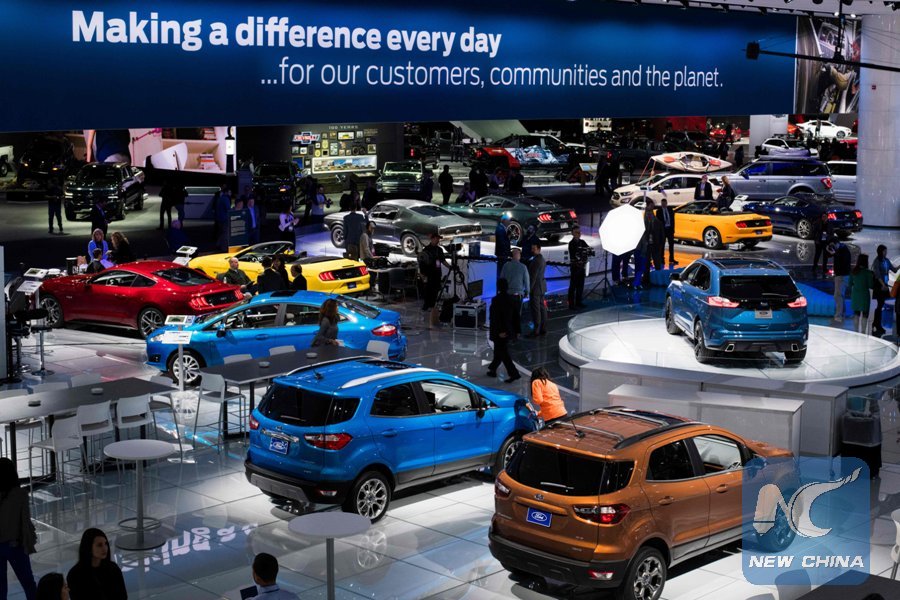
In this file photo taken on Jan. 16, 2018, people visit the Ford exhibit during the press preview at the 2018 North American International Auto Show in Detroit, the United States. (AFP Photo)
WASHINGTON, Feb. 25 (Xinhua) -- A large majority, abtou 86 percent, of the economists surveyed believe car tariffs would have either a "somewhat consequential" or "consequential" harm, according to a report released Monday by the National Association for Business Economics (NABE).
Of the 281 NABE members recently surveyed, 44 percent expects the negative impact from the U.S. imposing tariffs on imported vehicles to be "somewhat consequential," while 42 percent thinks it would be "consequential."
The economic policy survey, usually conducted semiannually, was administered between Jan. 30 and Feb. 8.
Last week, the U.S. Commerce Department submitted a report to the White House on whether to impose tariffs on imported cars and auto parts on national security grounds, drawing backlash from auto makers, suppliers, and industry groups.
The Motor & Equipment Manufacturers Association (MEMA), which represents auto parts suppliers, said the potential tariffs were "ill-advised," warning that the impacts would be "long-term and far reaching."
Nathan Nascimento, executive vice president of Freedom Partners, a free-market, non-partisan advocacy group, said that a 25-percent tariff on imported autos would put U.S. consumers and businesses "on the express lane into a ditch."
The cumulative effect of current and potential U.S. trade actions on automobiles and auto parts could cause new car prices to rise by 2,750 U.S. dollars on average, according to estimation by the Center for Automotive Research (CAR) in a recently released report.
The Commerce Department launched the Section 232 investigation in May 2018 at President Donald Trump's request to evaluate the effects of imports on national security.
Trump has 90 days to decide whether to adopt the department's recommendations and introduce tariffs on imported vehicles and auto parts.
The NABE survey also indicated that economists are concerned about existing tariffs on the whole. Some 36 percent of respondents expect the existing tariffs, if persist, will drag U.S. gross domestic product (GDP) growth in 2019 down by 25 basis points, while 26 percent foresee a reduction of GDP growth by 50 basis points.

